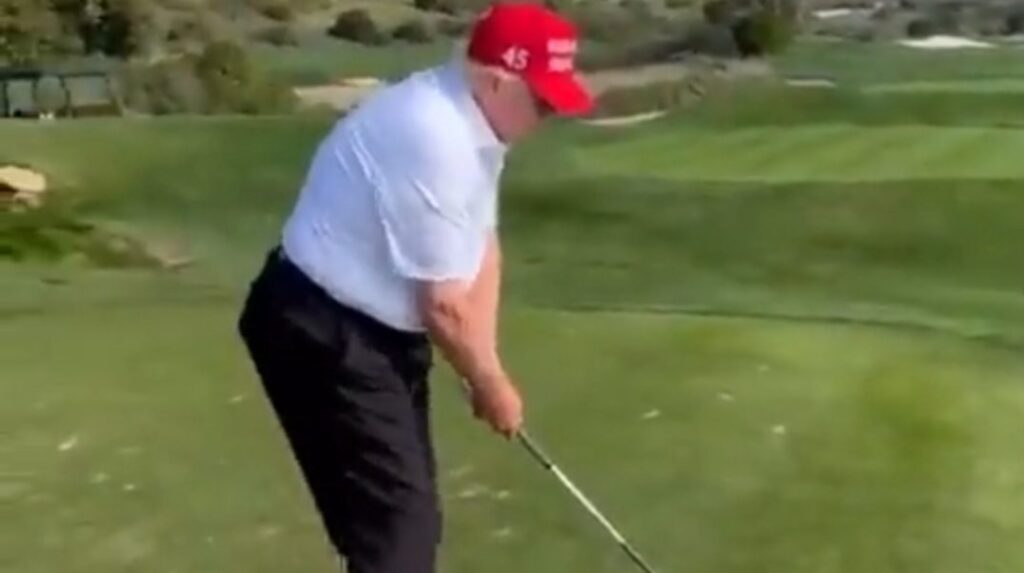The complexities surrounding the security of former President Donald Trump have escalated to a critical point, as reported by NBC News. Biden administration officials, including personnel from intelligence agencies and the Secret Service, have informed Trump that they cannot guarantee his safety from potential assassins when he engages in activities such as golfing. This alarming situation has led to Trump announcing a suspension of his golf games until after the upcoming election. The decision stems from two assassination attempts he has faced, coupled with ongoing threats, including a stated threat from Iran. The gravity of these security concerns has not only disrupted Trump’s lifestyle but reflects broader implications for the Secret Service’s capabilities in safeguarding high-profile individuals like Trump.
The first assassination attempt occurred during a rally on July 13 in Butler, Pennsylvania, where a gunman injured Trump, resulting in the death of one supporter and injuries to two others seated behind him. This incident raised significant alarms over the security measures in place, revealing dangerous lapses within the Secret Service’s operations. The second attempt was just a few months later on September 15 at Trump’s golf course in West Palm Beach, Florida. A man armed with a semi-automatic rifle was apprehended near the course, but it was due to the vigilance of a Secret Service agent that the situation did not escalate further. These events have not only threatened Trump’s life but have called into question the effectiveness of the security strategies employed to protect him.
In light of these incidents, a whistleblower within the Secret Service has come forward to Senator Josh Hawley, alleging that the agency is attempting to conceal deficiencies in Trump’s protection. This claim adds another layer of concern regarding the overall reliability of the security detail assigned to Trump. The whistleblower’s assertion that Secret Service leadership denies government auditors access to certain events implies potential misconduct aimed at disguising systemic flaws in the protective measures. Such allegations underscore the urgency for investigating and enhancing the security protocols surrounding Trump, especially in light of recent threats against him.
As a consequence of these dire warnings from federal agents, Trump has been advised against golfing, an activity that has long been integral to his lifestyle. In discussions with Secret Service officials, it was made clear that significant additional security would be required for him to play safely, given the vulnerabilities inherent to the locations of his golf courses, many of which are situated near public roads. This change reflects a significant deviation from Trump’s past routine, where he would frequently engage in golfing at one of his 18 properties worldwide, enjoying the sport as a central component of his daily life and presidency.
The implications of the Secret Service’s warnings have raised questions among Trump’s supporters and critics alike. Despite the heightened measures for Trump, there seems to be a stark contrast in security protocols for President Joe Biden, who has been seen enjoying vacations and leisure time without apparent concern for similar threats. This disparity has been highlighted by various political commentators and social media users, indicating a potential perception of inequity in the treatment of the two former presidents. Such observations amplify broader discussions about the political climate and the security apparatus’s capacity to balance protection and public engagement for both figures.
In conclusion, the ongoing debates over Trump’s security illustrate a pivotal intersection of politics, personal safety, and public perception. With Trump opting to suspend golfing until after the election and the Secret Service facing scrutiny over its protective capabilities, the situation remains fraught with tension. As the election approaches, both Trump’s campaign and the Secret Service will have to navigate the complex landscape of security threats while maintaining public confidence in their ability to ensure safety for high-profile individuals. These discussions will likely continue to shape the narrative surrounding the former president, the Secret Service, and the broader implications for political figures in the increasingly fraught national discourse.

